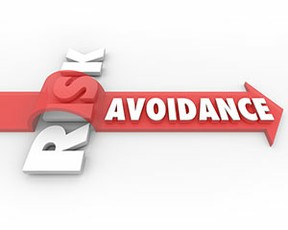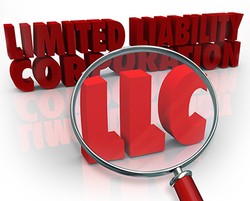This concept means that you, as the business owner, will not be personally responsible (or liable) for the debts and obligations of your corporation or LLC. Even though you may not operate a high-risk business, there is always the risk that your business will be sued or you will face debts that your business cannot afford. Without limited liability protection, your personal assets like your cars and home will be at risk.

What is Limited Liability and Why Do I Need it?
When you incorporate or form an LLC, you gain a huge benefit called "limited liability."
Limited liability is normally associated with corporations, and it is the main reason people choose to incorporate. Fortunately, small business owners and entrepreneurs can also enjoy this benefit by forming a limited liability company (LLC), which is a more relaxed business structure that costs less to form and maintain.
Liability Protection with an LLC
 One of the greatest advantages to forming an LLC is avoiding personal liability for business debts and obligations. When you form an LLC, the LLC itself will be liable for debts and liabilities the business incurs, not the owners and managers.
One of the greatest advantages to forming an LLC is avoiding personal liability for business debts and obligations. When you form an LLC, the LLC itself will be liable for debts and liabilities the business incurs, not the owners and managers.
Keep in mind that limited liability protection with an LLC is not absolute and it can even depend on your state. It's important to consider your potential business risks and the protection an LLC can provide before you incorporate or choose a business structure. You will need to consider personal liability for the LLC's debts, liability for actions by employees or co-owners of the LLC, liability for your actions related to the business, and the LLC's liability for the debts of members.
Liability for Your Actions
While the protection the LLC provides covers many situations, there is a major exception in every state. If you form an LLC, you will still be liable for your own wrongdoing that you commit during the course of your business. This means the LLC owners can be liable if they are reckless or fraudulent or directly injure someone due to negligence, for example. This is why liability insurance is still important.
Liability for Members' Debts
The assets and property of an LLC cannot be taken by creditors of the company's owner to satisfy personal debt obligations. Instead, creditors who are owed money by an LLC owner can attempt to collect in other ways. Depending on the state, the creditor may foreclose on the owner's ownership interest in the LLC or get a court to order the LLC to pay the creditor all money that is due to the LLC owner.
Liability for LLC Debts
When you form an LLC and do not personally guarantee to pay the company's debts, you are typically not personally liable for the debts of the business.
Liability for Actions by Co-Owners
In every state, forming an LLC protects owners from personal liability for any wrongdoing on the part of a co-owner or employees of the business. If the LLC is found liable, the LLC's assets can be taken by creditors to satisfy a judgement.
While LLC liability protection does cover many situations, it's important to understand what it does not protect against so you can choose the right business structure and protect your personal assets with other strategies like liability insurance.
References:
https://www.sba.gov/content/limited-liability-company-llc
You might also like
5 Steps to Starting Your Own BusinessMillions of people dream of the day when they will become their own boss. Man...
Limited Partnership vs LLC: Which One is Right for Me?Are you forming a business? The most important step is choosing the right typ...



 5 Steps to Starting Your Own Businesson 05/27/2016
5 Steps to Starting Your Own Businesson 05/27/2016
 Tips for Getting Certified as a Women Owned Businesson 05/06/2016
Tips for Getting Certified as a Women Owned Businesson 05/06/2016
 Tips for Writing Your LLC Articles of Organizationon 01/19/2016
Tips for Writing Your LLC Articles of Organizationon 01/19/2016
 Important Reasons to Incorporate Your Nonprofiton 09/14/2015
Important Reasons to Incorporate Your Nonprofiton 09/14/2015


Comments